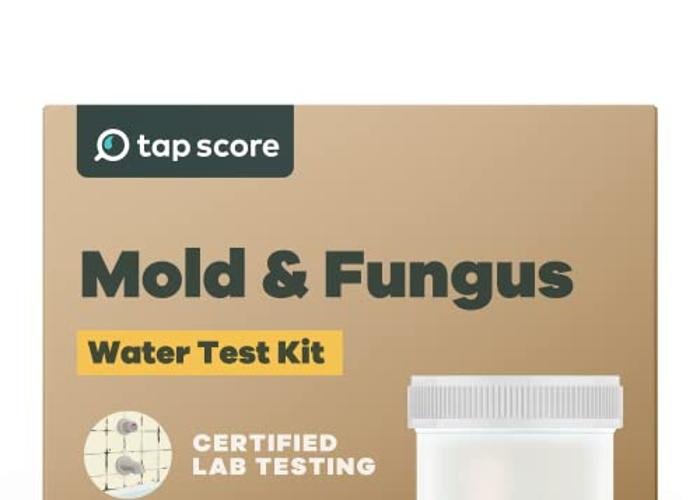Have you ever taken a sip of water and wondered what exactly you were drinking? Invisible particles and impurities can lurk in tap water, even if it looks clear. This is where a good water filter steps in, but finding the best one can feel like navigating a maze. The market is flooded with different brands, technologies, and claims, making it tough to know which filter is right for you and your family.
Picking the wrong water filter is a real pain. You might end up with water that still tastes funny, health risks you didn’t catch, or just a lot of wasted money. It’s easy to feel stuck when you start seeing confusing words like “activated carbon” or “reverse osmosis.” You might find yourself wondering if a simple pitcher is enough or if you need to install a big system for the whole house. At the end of the day, you just want something reliable that cleans your water well without costing a fortune.
In this guide, we’ll cut through the clutter and give you the straight facts. We’ll explore the best water filter options based on Wirecutter’s recommendations. We’ll explain what makes each filter stand out and help you understand the pros and cons. By the end, you’ll be equipped to choose the perfect water filter for your needs, ensuring clean and safe drinking water for you and your loved ones. So, let’s dive in and find your perfect filter!
Our Top 5 Water Filter Wirecutter Recommendations at a Glance
| Image | Product | Rating | Links |
|---|---|---|---|
 |
Tap Score Mold and Fungus in Water Test Kit | 8.8/10 | Check Price |
Top 5 Water Filter Wirecutter Detailed Reviews
1. Tap Score Mold and Fungus in Water Test Kit
Rating: 9.1/10
Worried about mold and fungus in your drinking water? The Tap Score Mold and Fungus in Water Test Kit is here to help. It’s designed to find common mold and fungus that could be in your water. This kit is recommended for a good reason. Tap Score uses special labs that are certified by the EPA. It’s also been named the #1 best home water test by NYT Wirecutter from 2021 to 2024. This kit is fast, accurate, and easy to use. It will give you peace of mind about your water.
What We Like:
- Tests for over 30 types of mold and fungus.
- Includes everything you need for testing, like easy instructions and a pre-paid shipping label.
- Provides easy-to-understand lab reports with health and taste risk assessments.
- Offers expert support from scientists and engineers who can answer your questions.
- Uses certified labs for fast and accurate results.
- The test kit gives you unbiased information without trying to sell you anything.
What Could Be Improved:
- Results take about 8 business days to get back.
This Tap Score kit is a great way to check your water for mold and fungus. It gives you the information you need to keep your water safe.
The Ultimate Buying Guide: Filtering Your Water
Water filters help make your water cleaner. This guide helps you choose the best one. We will look at important things to think about.
Key Features to Look For
You want a water filter that works well. Here are some important features:
- Filter Type: There are many filter types. Some are pitchers. Others attach to your faucet. Some go on your whole house. Each type works differently.
- Filter Capacity: How much water can the filter clean? Some filters clean a lot of water. Others clean less. Think about how much water you use.
- Filtration Speed: How fast does the filter work? Some filters are quick. Others take longer.
- Certifications: Look for filters with certifications. These show the filter is tested. They prove it removes harmful things.
- Ease of Use: Is the filter easy to set up and use? You don’t want something complicated.
- Replacement Filters: How often do you need to change the filter? Are replacement filters easy to find?
Important Materials
Water filters use different materials. These materials affect how well the filter works.
- Activated Carbon: This is a common filter material. It removes bad tastes and smells. It also takes out some chemicals.
- Ceramic: Ceramic filters trap bigger particles. They can also remove bacteria.
- Reverse Osmosis Membranes: These filters are very good. They remove many contaminants. They are often used for drinking water.
- Plastic: Most filters have a plastic housing. Make sure the plastic is safe. Look for BPA-free options.
Factors That Improve or Reduce Quality
Some things make a water filter better. Other things make it worse.
- Good Quality Improves Quality: Filters with more layers usually work better. More layers can remove more things from the water.
- Regular Maintenance Improves Quality: Change your filter regularly. This keeps it working well. Follow the instructions on the filter.
- Poor Quality Reduces Quality: Cheap filters may not remove everything. They might also break down faster.
- Using the Wrong Filter Reduces Quality: Don’t use a filter for the wrong job. For example, a faucet filter won’t clean all the water in your house.
User Experience and Use Cases
Think about how you will use the filter. This helps you choose the right one.
- Drinking Water: If you want cleaner drinking water, a pitcher filter is good. You can also use a faucet filter.
- Cooking: Use a filter for cooking to make better-tasting food.
- Whole House: A whole-house filter cleans all the water in your home. This protects your pipes and appliances. It gives you cleaner water everywhere.
- Travel: Take a water filter with you when you travel. This can help you drink safe water.
Q: What is the most important thing to look for in a water filter?
A: The most important thing depends on your needs. Think about what you want to remove from your water.
Q: How do I know when to change my filter?
A: Most filters have a timer or indicator. This tells you when to change it. Also, pay attention to the water taste and flow.
Q: Are all water filters the same?
A: No, they are not. They use different materials and methods. Some are better than others.
Q: What is activated carbon?
A: Activated carbon is a material that removes bad tastes and smells. It also removes some chemicals.
Q: What is a reverse osmosis filter?
A: This filter uses a membrane. It removes many contaminants, making very clean water.
Q: Are certifications important?
A: Yes, certifications are important. They prove the filter is tested and works well.
Q: What is the best type of water filter?
A: The best type depends on your needs and budget. Think about what you want to remove from the water.
Q: How do I install a faucet filter?
A: Follow the instructions that come with the filter. Usually, it screws onto your faucet.
Q: Can I use a water filter for well water?
A: Yes, but you might need a special filter. Well water often has more contaminants. Consider a whole-house filter.
Q: Where can I buy a good water filter?
A: You can buy water filters online or at hardware stores. Check reviews before you buy.
In conclusion, every product has unique features and benefits. We hope this review helps you decide if it meets your needs. An informed choice ensures the best experience.
If you have any questions or feedback, please share them in the comments. Your input helps everyone. Thank you for reading.

Hi, I’m Larry Fish, the mind behind MyGrinderGuide.com.. With a passion for all things kitchen appliances, I created this blog to share my hands-on experience and expert knowledge. Whether it’s helping you choose the right tools for your culinary adventures or offering tips to make your kitchen more efficient, I’m here to guide you. My goal is to make your time in the kitchen not only easier but also enjoyable! Welcome to my world of kitchen mastery!

